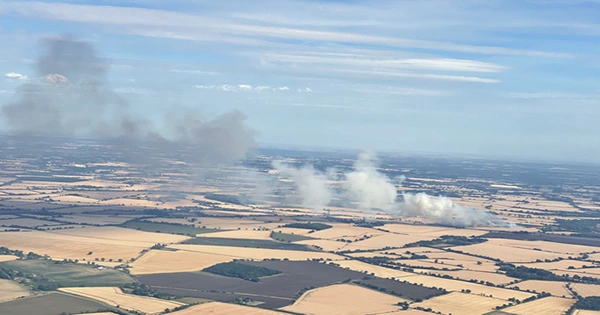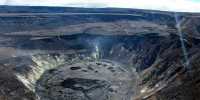According to a recent multi-agency assessment coordinated by the World Meteorological Organization, the global effort to address climate change is going in the wrong way (WMO). The latest reports show a huge gap between world powers’ intentions and realities, despite the fact that they have been steadily increasing their commitments to achieve net-zero.
The United in Science 2022 report demonstrates how atmospheric greenhouse gas concentrations, such as those of carbon dioxide (CO2), methane (CH4), and nitrous oxide (N2O), are rising to historic heights. Following a brief pause brought on by COVID-19, greenhouse gas emissions have since increased to levels higher than those before the pandemic.
All of this indicates that we are rapidly exceeding the global climate targets. The world agreed to restrict global warming to less than 2°C (3.6°F), ideally 1.5°C (2.7°F), over pre-industrial levels in the Paris Climate Agreement in 2015.
Now, that lower limit is rapidly approaching. The paper emphasizes how there is now a 48 percent risk that the annual mean temperature will momentarily be 1.5°C (2.7°C) higher than pre-industrial levels during at least one year in the following five years.
Emission reduction commitments for 2030 must be seven times larger than they are now if the earth is to stay on track with the 1.5°C goal of the Paris Agreement. Simply put, not nearly enough is being done by the globe to avert the disastrous effects of the climate issue.
“Wildfires, floods, droughts, heatwaves, extreme storms, and droughts are getting worse and shattering records at an alarming rate. European heat waves Massive flooding in Pakistan. severe and protracted droughts in the US, the Horn of Africa, and China. The new magnitude of these catastrophes is not natural. They pay for humanity’s addiction to fossil fuels, according to a statement from UN Secretary-General António Guterres.
The United in Science study for this year indicates that the destructive potential of climate consequences is reaching new heights. We continue to use fossil fuels more and more each year, despite the symptoms getting progressively worse.
This report demonstrates how the implications are becoming less and less ambiguous. The last seven years, from 2015 to 2021, have been the warmest on record. In addition, there is a 93 percent chance that at least one of the upcoming five years will be warmer than 2016, the warmest year ever recorded.
If governments maintain their current course, there is a 66 percent possibility that by the end of the twenty-first century, the average global temperature would be 2.8°C (5.04°F) higher than it was before the Industrial Revolution. According to the analysis, we’re probably looking at a 2.5°C (4.5°F) increase even if new commitments are completely implemented.
The world must attempt to lessen the harm as much as possible and look for solutions to adapt to the changing earth as we have already passed the point of no return.
“This sobering analysis shows that despite our gradual progress in limiting greenhouse gas emissions, global warming cannot be sufficiently controlled to prevent at least some negative effects. Therefore, whilst efforts to reduce emissions must continue and intensify, we must also face the unwelcome reality that we must adapt to the changing climate, said Emeritus Professor Neville Nicholls of Monash University, an environmental specialist who was not directly involved in the report.















